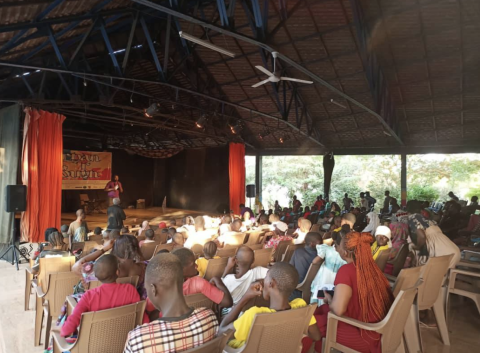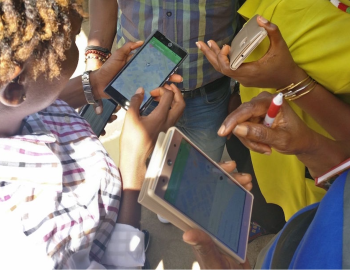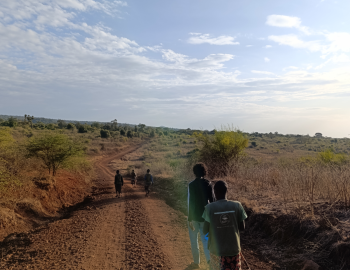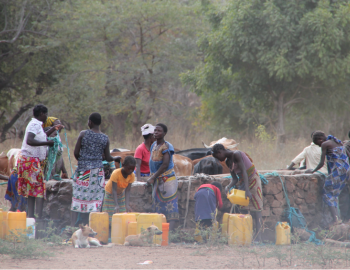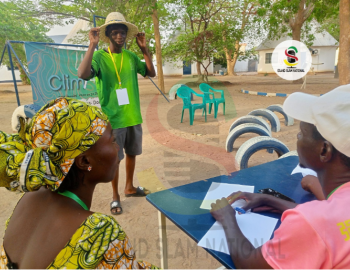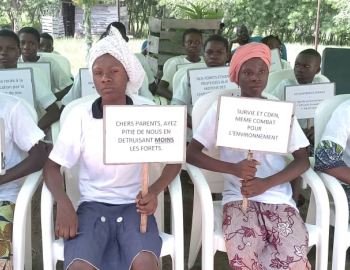From knowledge to climate-resilient action - five African organisations selected for CDKN grants
From knowledge to climate-resilient action - five African organisations selected for CDKN grants
As part of its commitment to turning climate knowledge into climate-resilient action, CDKN is providing Knowledge-to-Action (K2A) grants in Africa. After putting out an open call for locally-led adaptation initiatives last year, five K2A projects were chosen from an extremely competitive pool of over 1000 applicants. The selected K2A projects are in Benin, Cameroon, Kenya, Mozambique and South Sudan.
Each project is mobilising and combining indigenous, local and scientific knowledge to help inform ecosystem-based land-management practises, improve access to finance and respond to gender-based vulnerabilities. All of the projects are locally-led, meaning that local actors are integral to the design, implementation, governance and monitoring of each project’s activities. These local actors include small-scale farmers in South Sudan and Mozambique, pastoralists and herders in Kenya, religious leaders and local government in Benin, and young people in urban areas in Cameroon. Each project will receive US$ 150,000 over the next 2-3 years to support their locally-led adaptation initiative. Find out more about the five projects below.
Identifying climate-related risks and adaptation measures through infrastructure mapping
Project lead: Youth Empowerment and Development Aid (YEDA)
Partners: Humanitarian Open Streets (HOT)
Location: Mundri county, South Sudan
Priority Theme: Finance for resilience
Timeline: January 2024 - February 2026
Project page: Identifying climate-related risks and adaptation measures through infrastructure mapping in South Sudan
Vision
To support an early warning system and reinvigorate village savings and loan associations, enabling vulnerable communities in Mundri West County to respond better to extreme climates and events.
Summary
Mundri West County, Western Equatoria State, has been cyclically affected by floods and unpredictable rain patterns during the past three years. A lack of reliable climate information means that the local population, who depend on growing crops, finds it difficult to predict and cope with climatic events. Recent events have caused homes and workplaces to be destroyed and people to be displaced.
YEDA, together with local partners, will implement a hands-on hazards and solutions mapping exercise with the local community that aims to map the climate patterns, the risks of climate-related disasters and the resources available to prevent and/or cope with such risks in Mundri West County. This includes the development of an evacuation and preparedness plan.
The project further aims to provide communities with better resources to prepare for disasters by revitalising the local village saving and loans associations and Cash-Voucher Assistance scheme. The latter can be used to purchase basic kits that become essential when an unpredictable climatic event occurs.
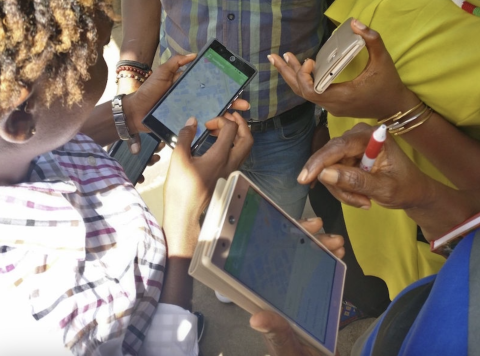
Supporting local adaptation efforts to leverage scientific and Indigenous knowledge
Project lead: Micaia Foundation
Partners: Gonazololo Youth Network
Location: Manica province, Mozambique
Priority Theme: Enhancing climate literacy
Timeline: January 2024 - February 2027
Project page: Supporting local adaptation efforts to leverage scientific and Indigenous knowledge in western Mozambique
Vision
To ensure residents of Manica Province have a better understanding of the climate risks that they face. To develop strategies for responding to climate risks through making use of both traditional and scientific knowledge, practices and technologies, including climate-smart farming approaches, indigenous food crops, and community actions on ecosystem management.
Summary
This project is a response to the growing threat to livelihoods and well-being posed by the impact of climate change on Manica Province, Mozambique. The province is blessed with resources but burdened by demographic pressures, entrenched poverty and growing inequality, and threatened by an increasingly volatile climate.
The project will work with 30 communities across the province to highlight and support local adaptation efforts such as the planting of indigenous food crops. In addition, the project will document traditional forms of ecological governance that have been displaced by modern systems of land and resource management, and work with communities to reintegrate them. This will include youth ‘brigades’ from Chimoio, led by a local youth organisation. They will work alongside villagers, to support practical actions that can create examples of effective mitigation and deeper understanding among urban youth about the challenges faced by their rural neighbours.
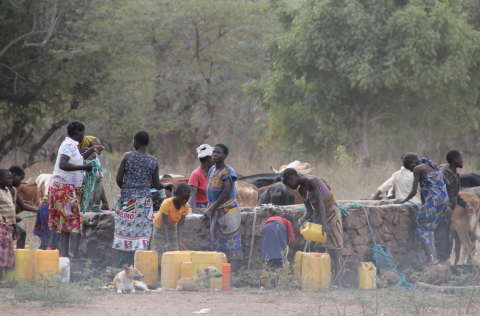
Mobilising locally-led action for restoration and governance
Project lead: Nature and People as One (NaPO)
Partners: SAKU Community Forestry Association
Location: Mt Marsabit, Kenya
Priority Theme: Ecosystem-based approaches
Timeline: January 2024 - February 2027
Project page: Mobilising locally-led action for restoration and governance in Mount Marsabit, Kenya
Vision
To establish a transformed landscape in Mt Marsabit, where indigenous communities actively engage in the management of the forest ecosystem. To strengthen project participants’ resilience to climate change, to enhance livelihoods, and create a renewed sense of ownership over the environment.
Summary
The project will be implemented in and around the Mt Marsabit dryland forest ecosystem, often referred to as a green island in the surrounding arid and semi-arid landscape. The landscape is a dry season grazing area for communities and is critical for the long term resilience of pastoralists. Land degradation in the area is increasing the vulnerability of local communities to drought and flooding, and is impacting the adaptive capacity of local ecosystems.
The project aims to enhance the inclusion and meaningful participation of indigenous community members in the planning, management and monitoring of the Mt Marsabit forest. It will enable the validation and signing of a participatory forestry management plan, support communities to implement locally adapted restoration techniques, and equip local herders with the technical skills and technology to enable them to monitor restoration progress.
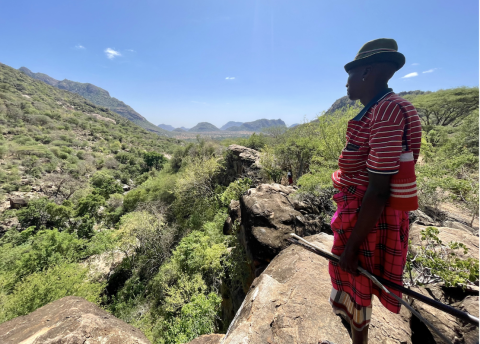
Enhancing biodiversity using traditional African knowledge
Project lead: Survie de la Mère et de l’Enfant (Survie)
Partners: Cercle de Développement des Initiatives Féminines (CEDIF), Bureau d'appui Conseil d'Afrique pour les Réalisations (BACAR), Association pour la Promotion des Initiatives Locales (ASSOPIL)
Location: Collines province, Benin
Priority Theme: Gender equity and social inclusion
Timeline: January 2024 - February 2027
Project page: Enhancing biodiversity using traditional African knowledge in Benin
Vision
To support the resilience of local communities and ecosystems in the face of climate change in Benin through the complementary use of endogenous knowledge and modern forest-protection techniques.
Summary
Benin has mangrove forests in the south of the country as well as protected forests that are culturally sacred in its central region. In recent years, sustainable agricultural practices based upon respectful attitudes towards nature have been replaced by modern approaches that focus more on economic gains - for example, logging activities - resulting in environmental degradation and increasing climate vulnerability. In 2021, flooding in Bétécoucou, Commune of Dassa-Zoumé, prompted the community to reflect on environmental management approaches and consider traditional means of protecting the local forests.
Survie aims to establish an exchange and collaboration between scientists, local development actors and members of the local community, including youth and womens’ groups, who can work together to integrate an endogenous approach into subnational ecosystem management plans. The project will:
- Document and evaluate the local environmental protection activities based on traditional African knowledge.
- Support the uptake of these management plans for other communities as well as national government actors.
- Support the local community in making the best use of endogenous knowledge for the preservation of the environment and biodiversity.
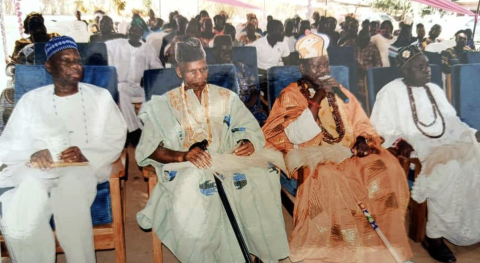
Urban art for climate
Project lead: Grand Slam National
Partners: ABOK Art, Mbar Mart Sarl, Voice4thought, Coupe d'Afrique de Slam Poésie (CASP)
Location: Maroua, Bertoua, Kribi and Douala, Cameroon
Priority Theme: Empowering young people
Timeline: January 2024 - February 2026
Project page: Urban art for climate in Cameroon
Vision
To offer young people in the towns of Maroua, Bertoua, Kribi and Douala, Cameroon, a platform through which to artistically express themselves and advocate for improved livelihoods that are more resilient to climate change.
Summary
Grand Slam National recognises that young people are willing and excited to artistically express themselves, and that these young people can use this expression to raise awareness about the impacts of climate change. The focus towns are plagued by deforestation, overfishing, poaching, and pollution which is leading to a loss of livelihood for many vulnerable people.
Through the project, young artists and performers in Slam, Storytelling and Stand-up will be supported through an artistic residency. They will be introduced to indigenous trades such as honey harvesting, eco-construction techniques (e.g. straw roofing), canoe making and recycling practices, which may help inspire their works, before touring Maroua, Bertoua, Kribi and Douala cities to showcase their performances.
Grand Slam will facilitate discussion panels and screenings of documentaries on climate and artistic writing, and host local apprenticeship workshops on recycling and indigenous environmental preservation actions. The performances will raise awareness about how local actors can change their behaviours and take action to become more resilient to climate change risks.
For more information on the K2A projects, please contact the K2A manager, Essia Guezzi, via email: Essia@southsouthnorth.org
